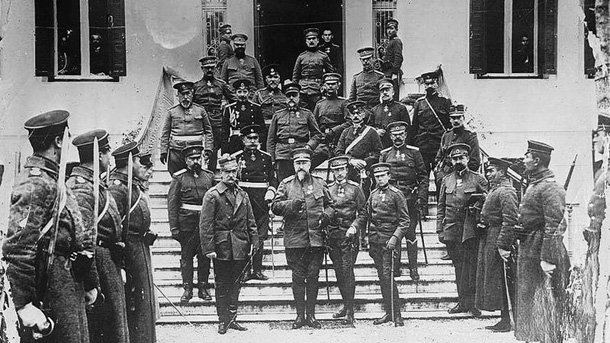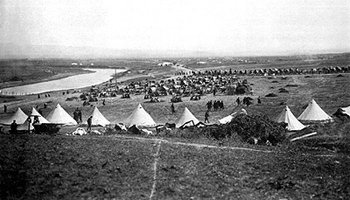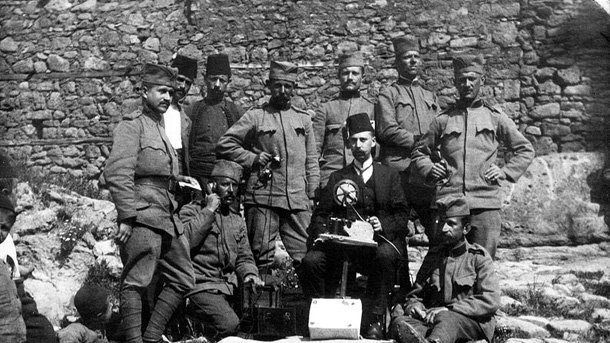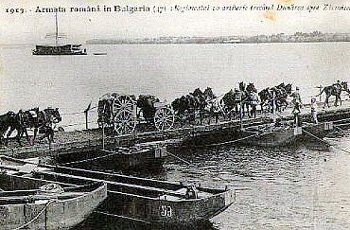
On June 16, the 100th anniversary since the start of the Second Balkan War was marked. This war was one of the most painful pages in modern Bulgarian history. Bulgaria started the war against Serbia, Greece and Montenegro, as previously the countries were allies against the Ottoman Empire in the First Balkan War. Later Romania and the Ottoman Empire joined forces against Bulgaria. The main reason for the start of the conflict was the dispute between the former allies, regarding territories freed from Ottoman rule. European powers also did little for resolving the Balkan disputes.
Significant gaps in Bulgarian diplomacy contributed to the negative outcome, as well. Bulgaria took part in the First Balkan War with the largest army in the alliance against the Ottoman Empire, but joined the war without solid agreements with its allies over the future of the freed territories. There was only an agreement with Serbia over the territory of Macedonia, but later Belgrade rejected it. In the First Balkan War the Bulgarian army fought on the main front in the direction of Constantinople and the

© Photo: archive
Straits. This enabled Serbia and Greece to take over more land in Macedonia. The two countries soon decided to stick to the principle of actual occupation and concluded a secret alliance against Bulgaria. In the former allies feelings of patriotism and belligerence sparked. Bulgaria was not an exception and was in the grip of militant euphoria. Romania, in turn, decided to claim a territory in northeastern Bulgaria, as compensation for the Bulgarian expansion in Macedonia. The Bulgarian government agreed to give the city of Silistra to Bucharest but still Romania decided in case of war to intervene on Serbian and Greek side. The Ottoman Empire closely followed the tense situation, waiting for a chance to win back lands in Eastern Thrace, especially Edirne. Bulgaria also missed the opportunity for Russian mediation. Russian Foreign Minister Sazonov insisted that Bulgaria should make some compromises but Bulgarian King Ferdinand did not want to make any compromises and continued to insist that Thessaloniki and Western Macedonia should be part of Bulgaria, despite they were occupied by Greek and Serbian forces. According to Academician Georgi Markov, Ferdinand wanted the Bulgarian national issue resolved through the creation of a country with borders similar to those defined in the Treaty of San Stefano.

© Photo: archive
“In this task he found support from Bulgarian politicians like Dr. Stoyan Danev, chairman of the National Assembly, who later became prime minister. Bulgarian Army generals led by Assistant Chief General Mihail Savov also supported the king. They decided not to retreat a single step. At that time a large coalition against Bulgaria began to emerge on the Balkans. This coalition was waiting for an excuse to start the Second Balkan War. And, unfortunately, Tsar Ferdinand, by a verbal order to gen. Mihail Savov on June 16, 1913 began pushing away the former allies from the Bulgarian lands in Macedonia, without the knowledge of the government. The government later stopped the attack. The former allies of Bulgaria, however, used this strategic mistake. Bulgaria should have waited instead of resorting to the strategy of ‘All or nothing, now or never."

© Photo: archive
Prime Minister Stoyan Danev ordered attacks to stop on June 18th but after a few days Serbia, Greece and Montenegro started a counter attack and formally declared war on Bulgaria. From a modern perspective, it is difficult to say whether peace could have been maintained. The situation was very similar to the eve of World War I, when the two hostile coalitions were both preparing offensive operations, and the question of who first declared war is often viewed as irrelevant. Objectively speaking, the Second Balkan War could have hardly been avoided. The situation was further complicated by disagreement among leaders in Sofia and the refusal of Tsar Ferdinand to make compromises. On June 28, Romania joined the war against Bulgaria. A day later Turkey also declared war on Bulgaria.
This war turned into a national catastrophe and Bulgaria lost a number of territories, although it kept territories freed during the First Balkan War. During the Second Balkan War, there were many acts of selflessness and a number of victories for Bulgaria. This is the reason why today, 100 years later, Bulgarians still remember with gratitude the heroism of Bulgarian soldiers and the heavy sacrifices made by the Bulgarian people.
English version: Alexander Markov
In 2024, the National History Museum sent expeditions to 22 archaeological sites. More than 1,400 artifacts were found during the season spanning the period from prehistoric times down to the Middle Ages. The most significant of these discoveries are..
From 31 January 2025, the first podcast about Bulgarian Orthodox communities abroad - Bridge of Faith - will be launched. The concept is the brainchild of the team of the Bulgarian National Radio's (BNR) overseas programme - Radio Bulgaria, and is being..
It is 131 years since the birth of Tsar Boris III, dubbed unifier. Boris Saxe-Coburg-Gotha found himself at the head of Bulgaria after the abdication of Tsar Ferdinand after the defeat of the country in World War I. The young monarch was crowned..
The Zograf Monastery on Mount Athos has a new abbot. Hieromonk Gavriil has been elected as the new abbot of the monastery, reported the website of the..

+359 2 9336 661
